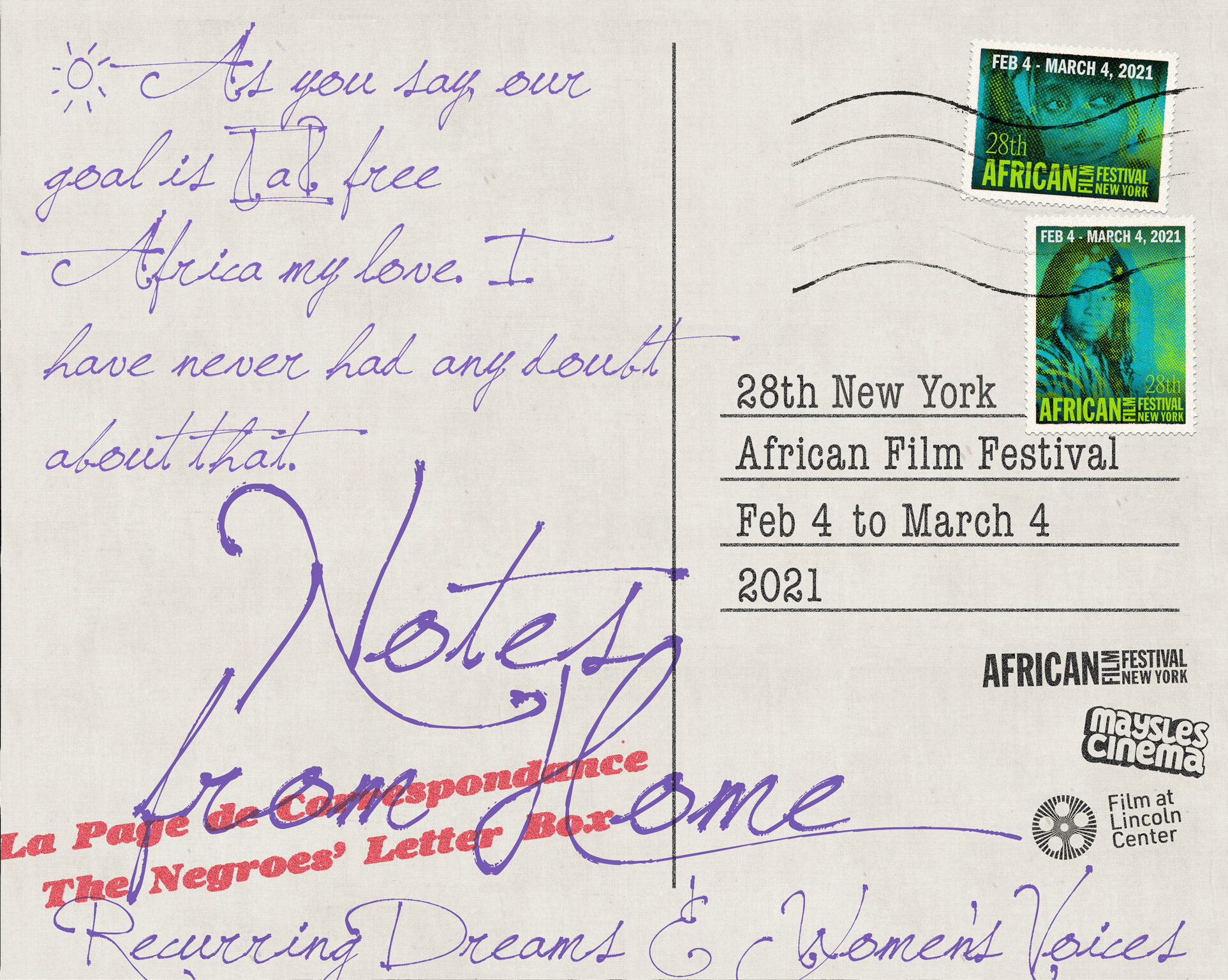2021 Statement
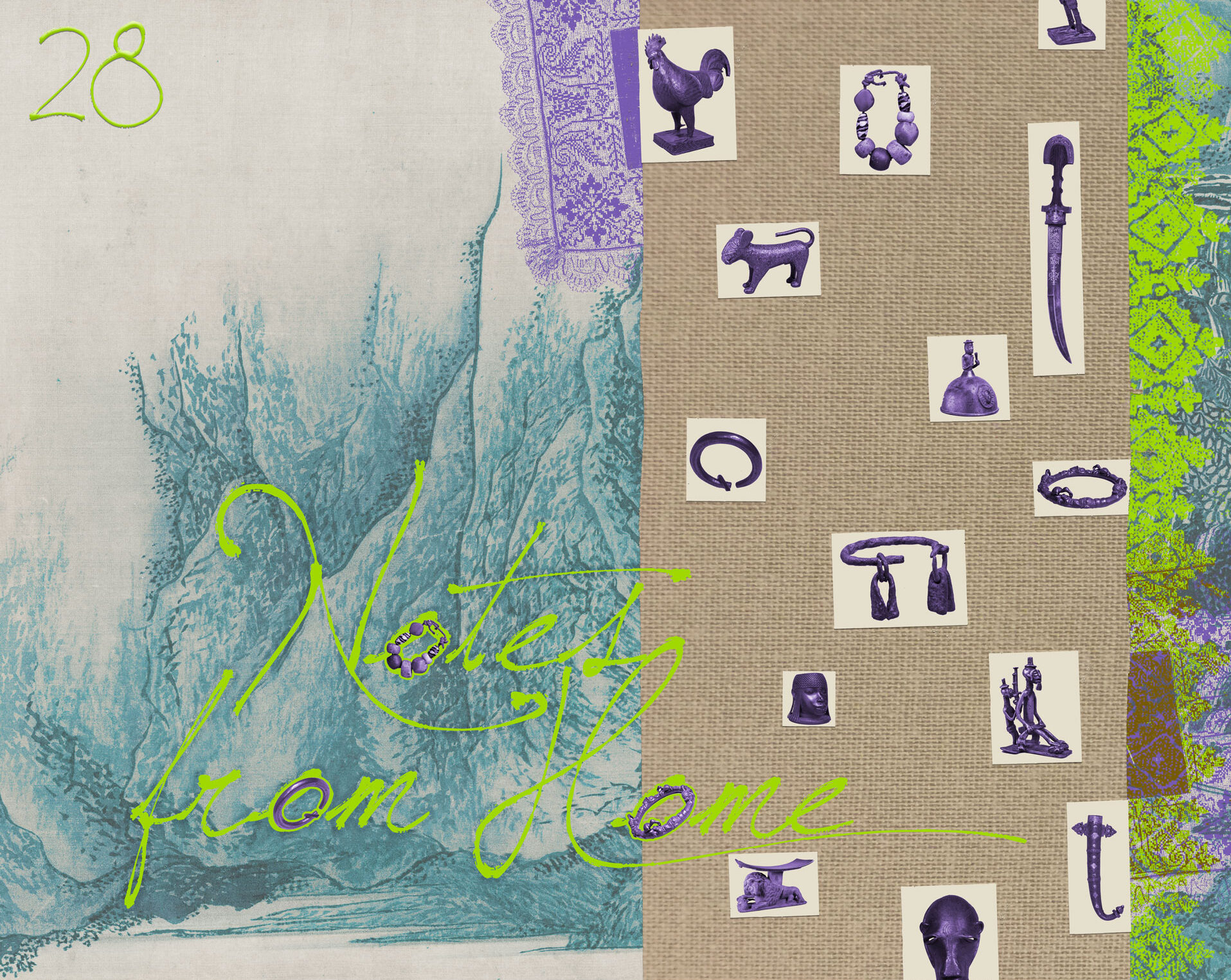
The 28th New York African Film Festival (NYAFF28) is presented under the banner, “Notes from Home: Recurring Dreams & Women’s Voices.” Programs in this edition of the festival present the many different “types of Africa”, reflecting the dynamism that is “Africaness,” and highlighting the myriad ways in which we are all connected in cyclical dreams of hope and change.
Presented with Film at Lincoln Center and in partnership with BAM and Maysles Documentary Center, NYAFF28 showcases over 85 short and feature-length films from Africa, Europe, North America, and South America. NYAFF28 is hosted in the virtual cinemas of Film at Lincoln Center, Maysles Documentary Center and BAM, allowing us to bring these incredible films directly to you, and making them available across the country. FilmAfrica—the cinematic companion to this year’s virtual BAM DanceAfrica celebration, showcases the best new narrative, documentary, and short films from across Africa and the diaspora, with a special focus on films from and about Haiti.
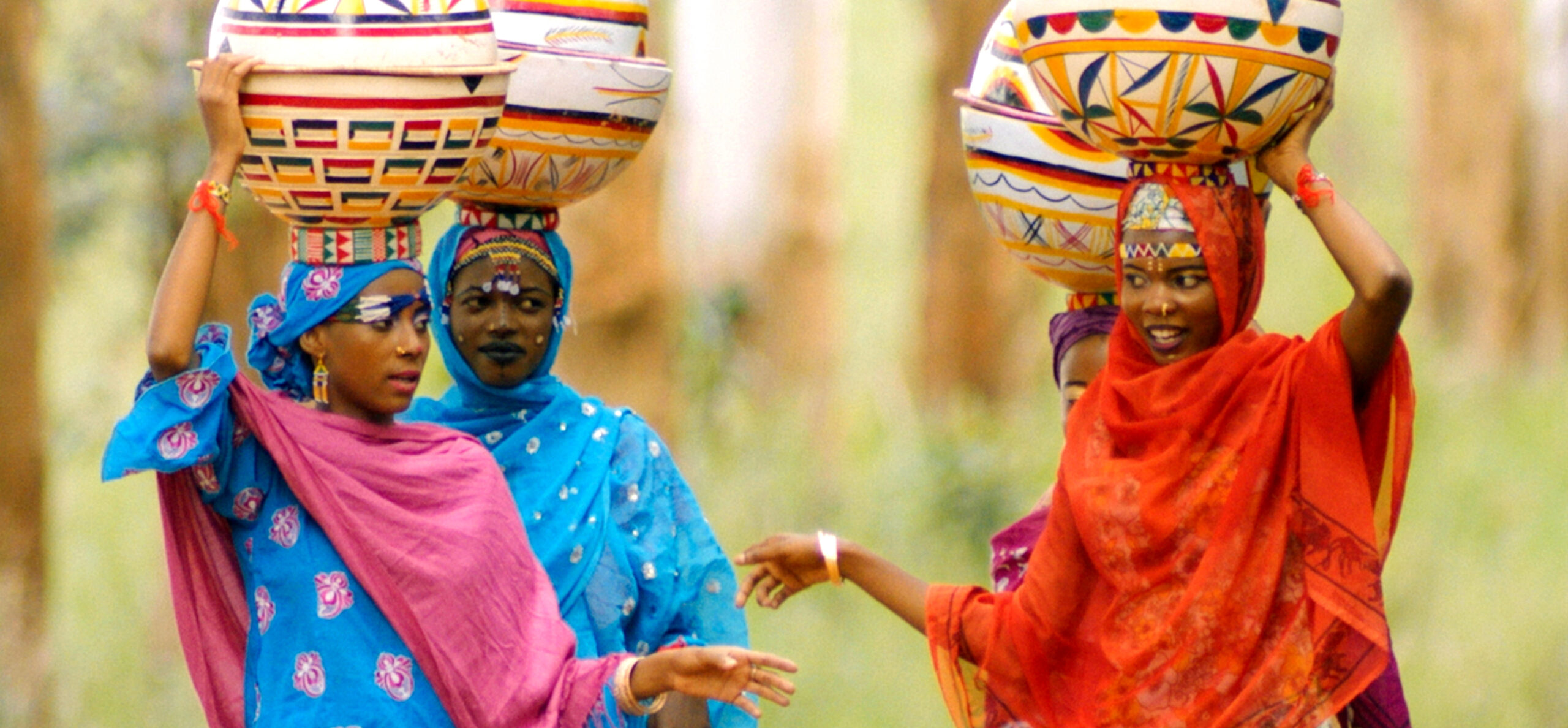
As the lines between our global communities become more blurred (or disappear altogether), so too does our perception of the spaces in which we find ourselves, leading to cultural shifts that evolve our realities as we reimagine the societies in which we find reflections of ourselves. The festival themes will be explored in films ranging from political dramas of the pro-independence movements to social comedies of postcolonial city life, both at home and abroad. Films will investigate how new immigrants maintain and transform African culture, how urban spaces are reshaped, and how these migrations and other global upheavals challenge traditional notions of nationality, citizenship, and cinema itself. The program includes films by and about African women that celebrate the beauty and strength of these women standing tall as catalysts of change, providing a much needed female perspective on the changing roles of women in African society.
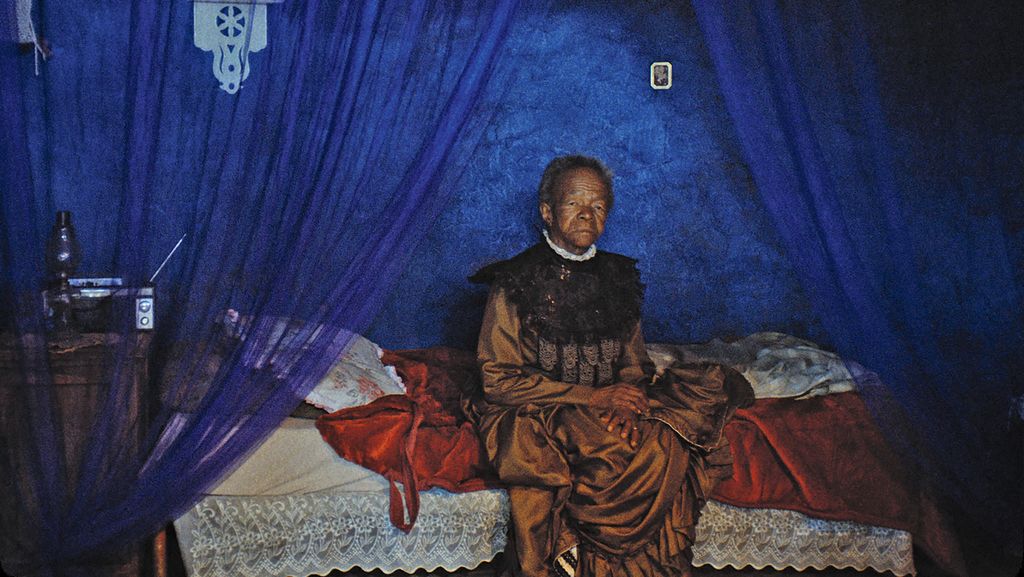
One such film which will be presented is Desmond Ovbiagele’s The Milkmaid, Nigeria’s entry for the 2021 Academy Award for Best International Feature Film. The film depicts the impact of extremism on the families of those it touches, through the story of a Fulani milkmaid who confronts religious insurgents. Lemohang Jeremiah Mosese’s acclaimed Sundance prizewinner, This Is Not a Burial, It’s a Resurrection, which recently became Lesotho’s first-ever Oscar entry will also be presented during the festival. The film paints a stirring portrait of an elderly woman whose plans for death are interrupted when news arrives that her village will be flooded and its inhabitants resettled to make way for a reservoir.
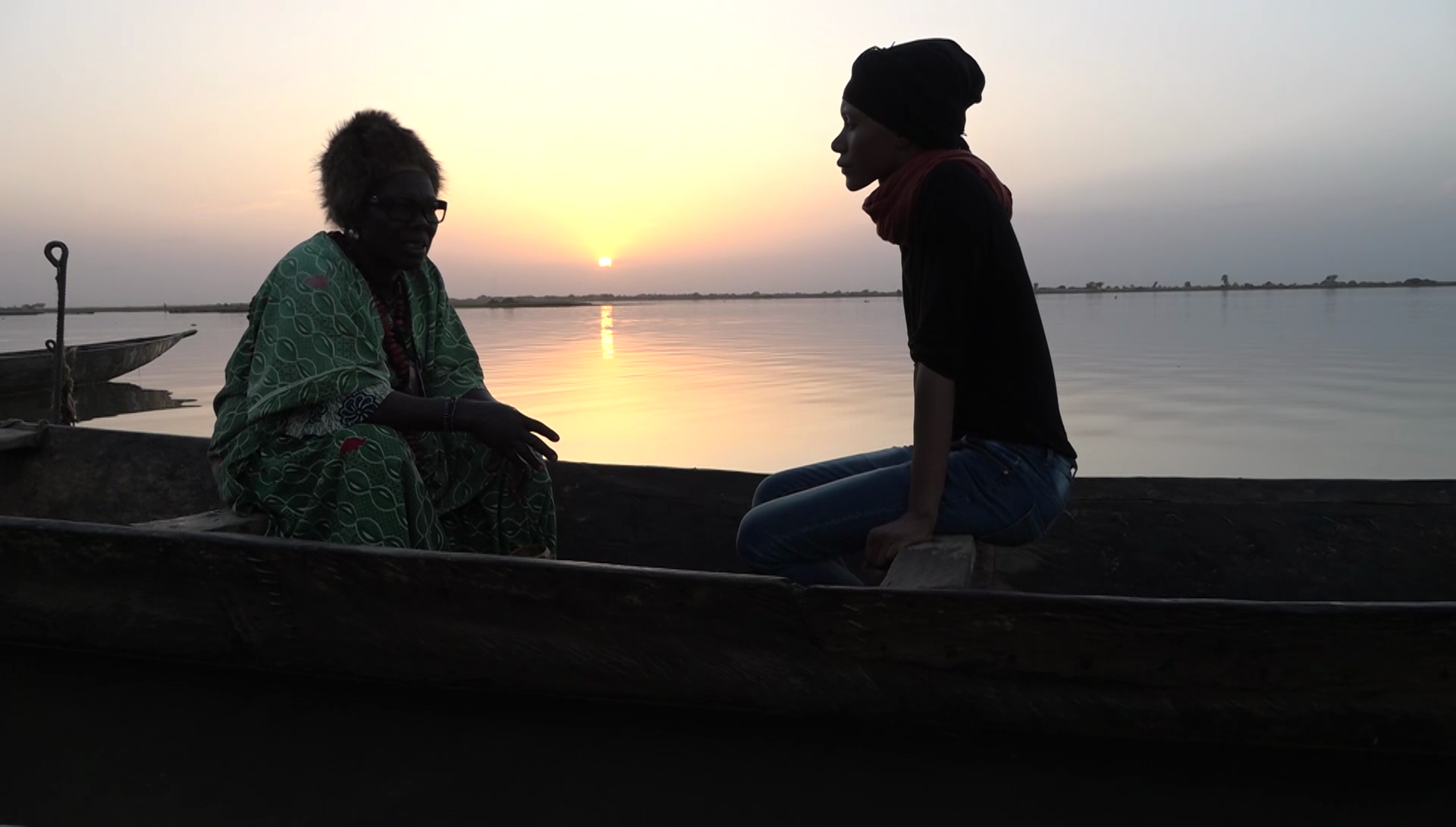
Other features in the program include the documentary Sankara Is Not Dead, following the young poet Bikontine as he travels along Burkina Faso’s only rail line in the wake of the 2014 uprising and encounters the enduring legacy of the late President Thomas Sankara; Pascal Aka’s Afro-noir Gold Coast Lounge, about a Ghanaian crime family fighting to prevent its lounge from getting shut down by the government; Mohamed Ismail’s La Mora, in which a young Spanish woman embarks on a journey of self-discovery to Morocco after finding a secret about her parentage; Amleset Muchie’s Min Alesh?, an Ethiopian drama about a young woman’s quest to change her family’s fate through her passion for running; Hawa Aliou N’diaye’s documentary Invisible Husband, which introduces audiences to the phenomenon of jinn possession in the director’s community in Mali; Atiq Rahimi’s Our Lady of the Nile, based on Scholastique Mukasonga’s semi-autobiographical novel of the same name, which brings viewers into the lives of teenage girls at a prestigious Rwandan boarding school as a growing inferno engulfs their nation; and A Day with Jerusa, which captures a mystical, intergenerational encounter between two Black women in Sāo Paolo, Brazil.
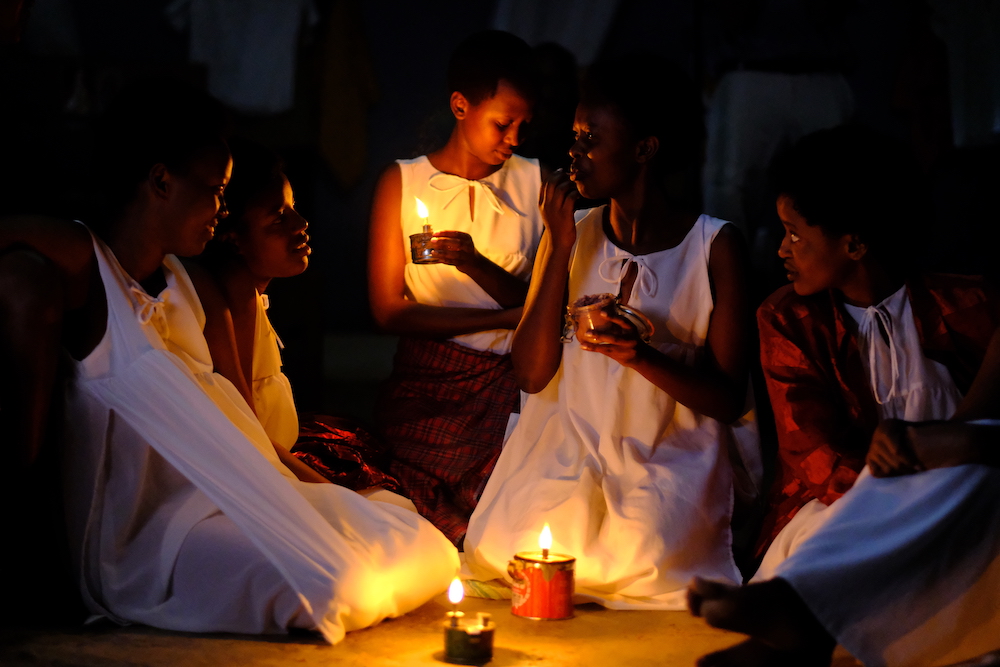
We bear witness as each generation takes a sprint and then passes the baton. Looking back, our filmmakers act as modern-day griots, grabbing that baton and running with the story of their time while also propelling us forward. This year’s festival captures that look toward the past that helps our storytellers meet the present moment with inspiration from the elders. In that line of thinking, we’re excited to present a new restoration of Camera d’Afrique (African Cinema: Filming Against All Odds), Férid Boughedir’s 1983 documentary capturing the rise and the striking visions of African auteurs like Ousmane Sembéne, Souleymane Cissé, Safi Faye, Oumarou Ganda, and Gadalla Gubara at a time when African countries were emerging from the shadows of colonialism.
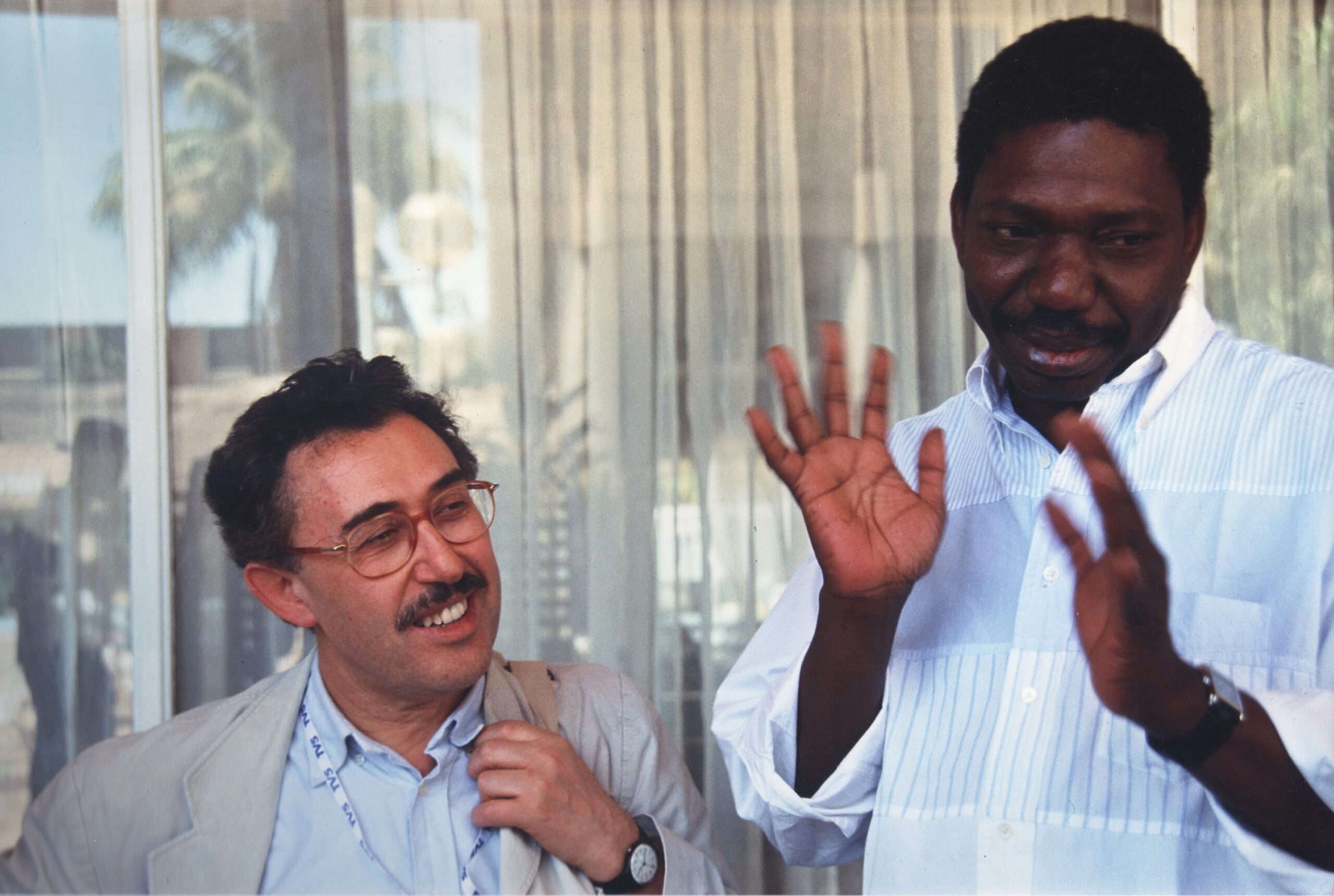
We’ll also showcase a retrospective of trailblazing filmmaker Fanta Régina Nacro, who became the first woman from Burkina Faso to direct a fiction film with her 1991 short, A Certain Morning (Un Certain Matin). Nacro is a founding member of the African Guild of Directors and Producers, and she explores modernity and tradition from a woman’s perspective in films that are poignant, satiric, and often surprisingly comic. A program of her shorts will include A Certain Morning, Bintou, Open Your Eyes (Puk Nini), and Konaté’s Gift (Le truc de Konaté).
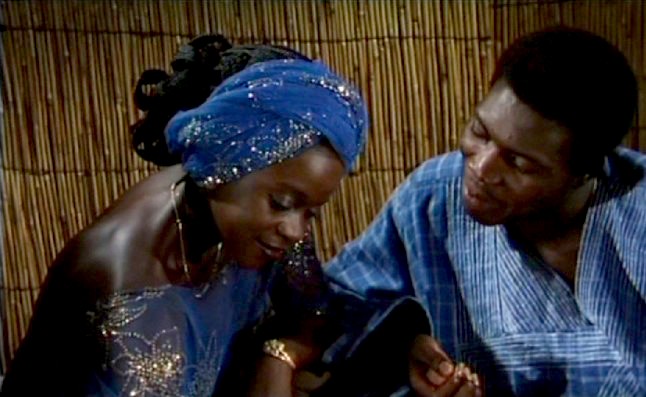
The festival continues at Maysles cinema, with a program of features and shorts that help tell the story of Africa and its Diaspora across many generations and contexts. Features will include Victorious De Costa’s Digging for Weldon Irvine, a loving examination of the under-celebrated legend that was Irvine and his socio-culturally evocative work; Sandra Krampelhuber’s Mane, the story of two rebellious Senegalese women pursuing their passions in the male-dominated spheres of rap music and wrestling; Katy Léna Ndiaye’s Time is on Our Side, depicting the daily life and political concerns of Serge Bamabara, aka Smockey: rapper, activist and co-founder of Balai Citoyen, a powerful force in Burkina Faso’s resistance against the dictatorship of Blaise Compaoré; Thomas Grand and Moussa Diop’s Golden Fish, African Fish, about the looming threats of industrial fishing, globalization, and foreign factories on southern Senegal’s artisanal fishing; Ron Mulvihill and Kelly Askew’s Maasai Remix, following three Maasai individuals in diametrically opposed contexts who confront challenges to their community by drawing strength from their shared traditions.
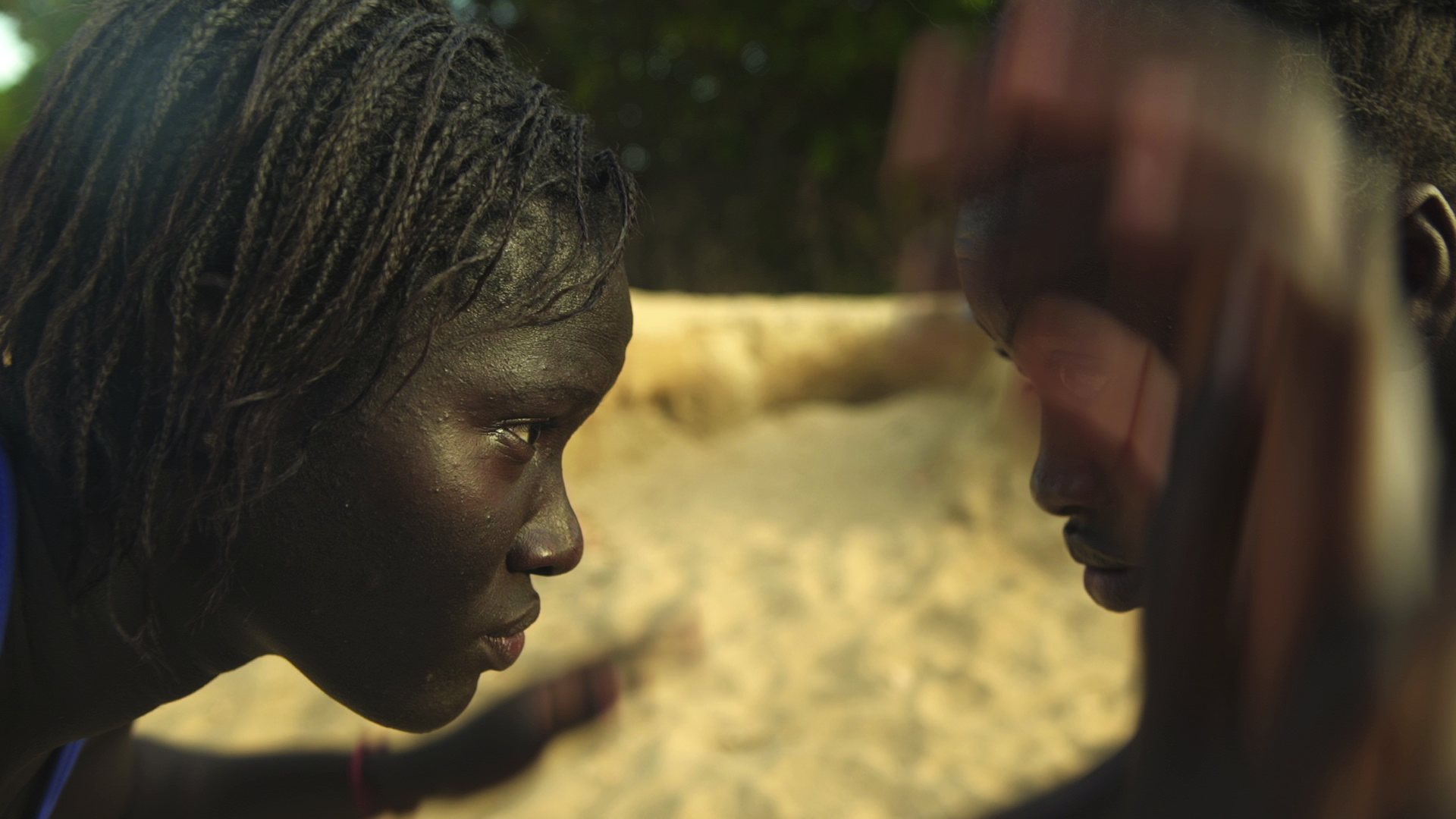
Bentley Brown’s Revolution from Afar, about Sudanese-American artists who gathered across the US in 2019 to perform in support of Sudan’s revolution; Ulysse Dikoumé Alechinsky’s ROULÀDAKAR, in which four urban sports enthusiasts from Nantes form a collective to develop interest in this adventurous lifestyle beyond French borders; Sifiso Khanyile’s A New Country, an examination of South Africa’s post-apartheid narrative from the early days of liberation to an increasingly fractured contemporary society; João Ribeiro’s Granma Nineteen and the Soviet’s Secret, a coming of age tale set in a small coastal African village, about two best friends who plan to foil the construction of a mausoleum threatening to destroy their neighborhood; Amina Weira’s Anger in the Wind, in which Nigerien filmmaker Weira reveals the impacts of decades-long uranium extraction in her hometown of Arlit by focusing on her father’s story; and Amina Abdoulaye Mamani’s In the Footsteps of Mamani Abdoulaye, in which the director spends 10 years reconstructing the past of her father and his lifelong commitment to the independence of his country.
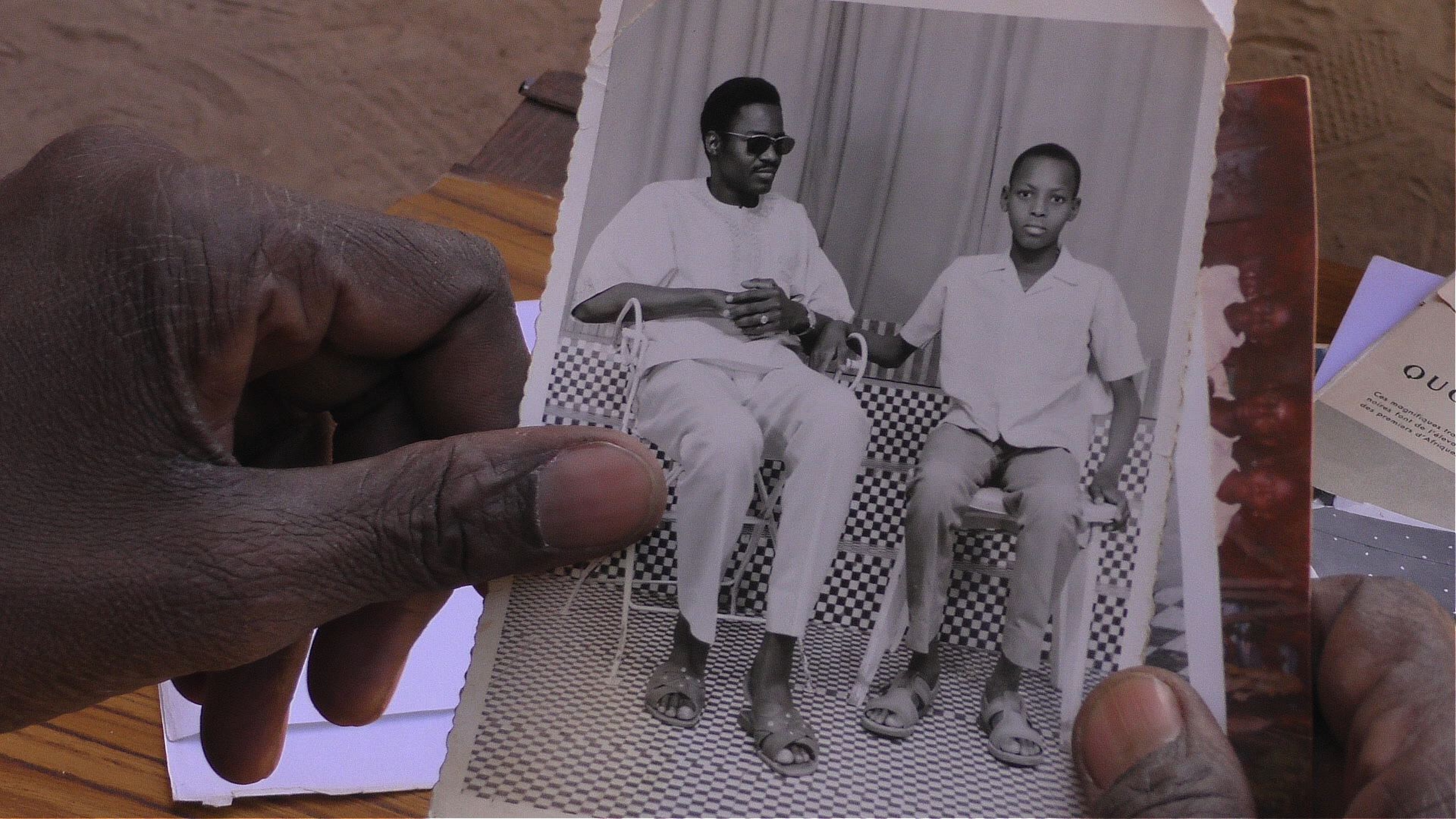
The seven shorts programs in this year’s festival tap into the pulse of protests and the calls for change bubbling up throughout the world, championed by a wave of artists throughout Africa and its diaspora. Visual and narrative experimentation reign within these films, which dismantle and refashion storytelling.
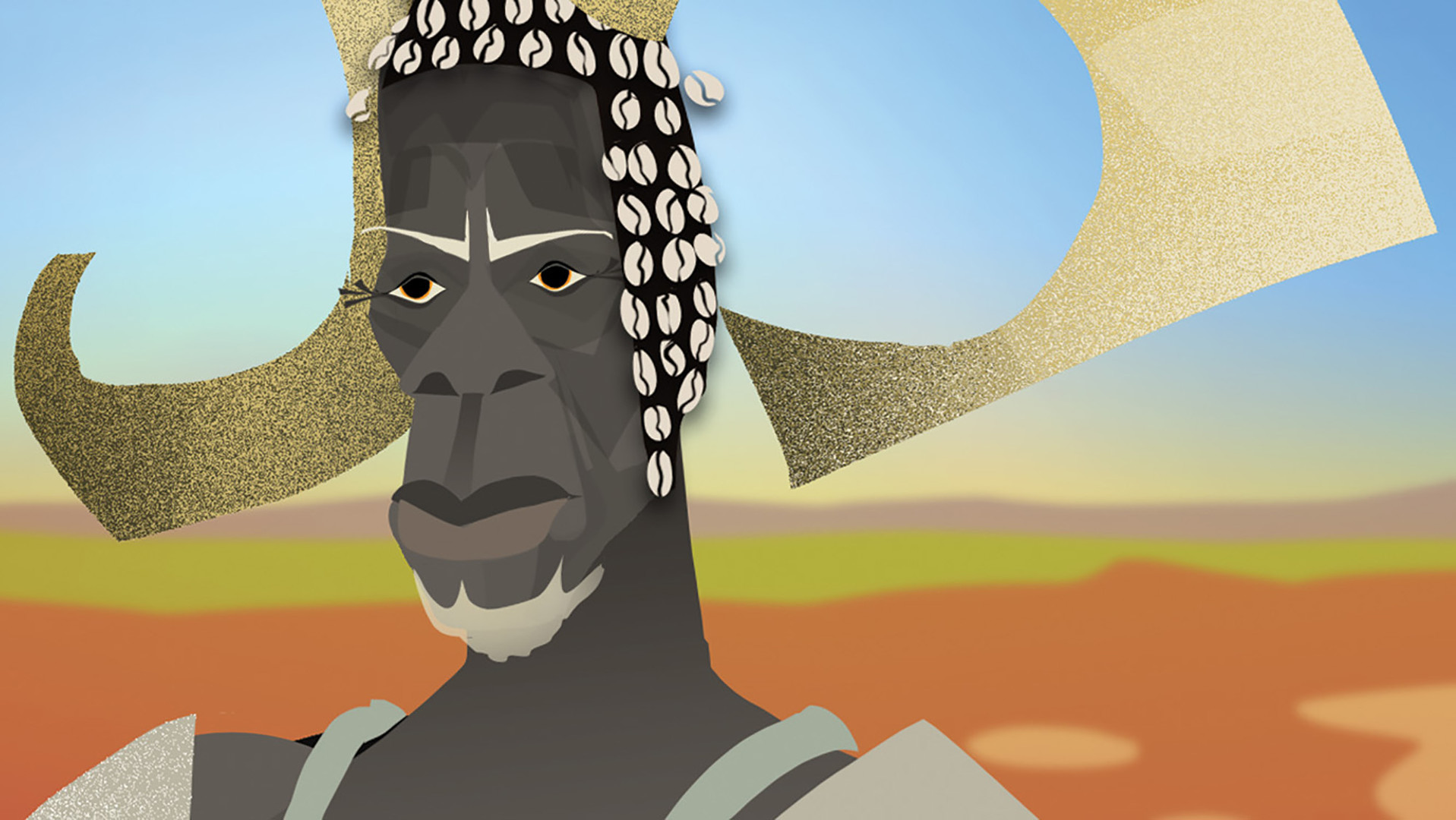
The festival presentations will also include a bonus of pre-recorded introductions and conversations with the filmmakers, which allow deeper insight into their creative processes and the context in which the films were made. These conversations are also an essential part of telling the African and African diaspora stories, and we’re happy to continue these dialogues virtually and across borders. Special events in this year’s festival include our virtual exhibit, featuring a visual excerpt from poet and author Ladan Osman’s Exiles of Eden and short performance works by artist duo, Mwangi Hutter. This exhibit can be accessed for free at africanfilmny.org until March 4.
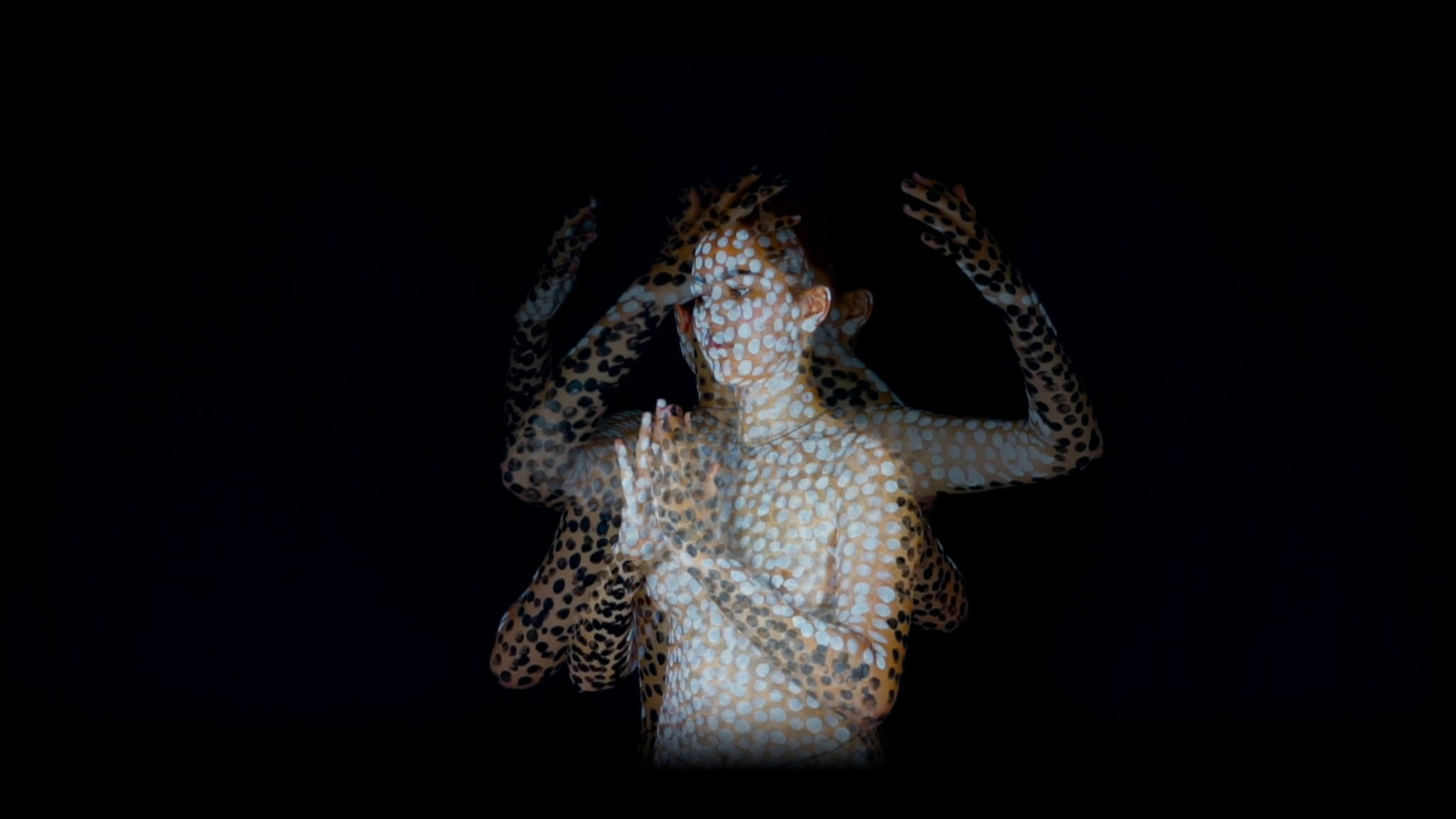
From Friday, May 28 through Thursday, June 3, BAM presents FilmAfrica, in partnership with AFF, showcasing the best contemporary narrative, documentary, and short films from Africa and the diaspora. FilmAfrica is the cinematic companion to BAM’s 44th annual DanceAfrica Festival, which includes a special virtual dance performance, workshops, a virtual bazaar, and virtual art, running May 4—June 14.
This year, in coordination with DanceAfrica’s celebration of Haiti, FilmAfrica highlights films from and about the Caribbean nation including Raoul Peck’s Meurtre à Pacot (2014), set in the aftermath of the 2010 earthquake, the film evokes the tension of Pasolini’s 1968 classic Teorema; Eve Blouin & Raynald Leconte’s In the Eye of the Spiral (2014) looks at the Haitian artistic and philosophical movement Spiralism, the film screens with Real Maravilloso (Raynald Leconte, 2018) which examines the impact of Magical Realism across Caribbean nations; Guetty Felin’s Ayiti Mon Amour (2016) is a neorealist fable of grief and healing set five years after the devastating 2010 earthquake; and Philippe Niang’s Toussaint Louverture (2012) depicts the slave revolt by Louverture that led to the independence of Haiti.

The festival lineup also includes Matwetwe (Kagiso Lediga, 2018), set in the South African township of Atteridgeville, the film follows a young man and his best friend as they’re swept up in the biggest hustle of their lives; The Mercy of the Jungle (Joël Karekezi, 2018) about two Rwandan soldiers who are left behind in the jungles of eastern Congo, forcing them to embark on an odyssey through one of the most beautiful and treacherous forests on earth; Mrs. F. (Chris van der Vorm, 2019) follows the title character as she gathers women to participate in a gender equality and empowerment project in Nigeria; and Seeds: Black Women in Power (Éthel Oliveira & Júlia Mariano, 2020). Following the assassination of activist Marielle Franco, Brazil’s 2018 elections saw the largest number of black women enter local campaigns in the country’s history. Seeds follows the campaigns of a group of women in Rio de Janeiro.
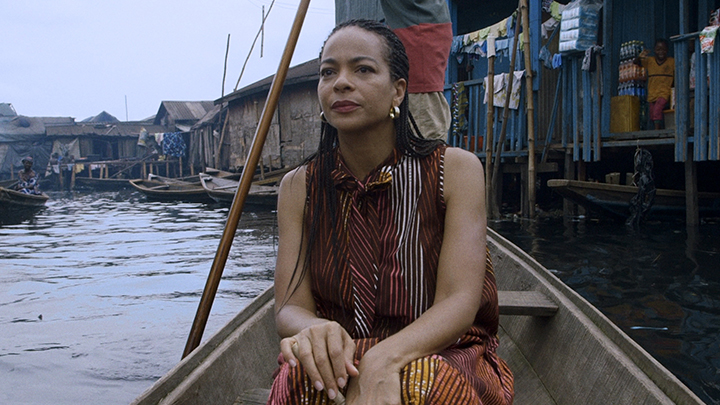
FilmAfrica also includes a stunning program of shorts films: Jojolo (Lebert Bethune, 1966), In the Heart of Vivianne Gauthier (Marie-Claude Fournier, 2017), Tezen (Shirley Bruno, 2016), The Prophetess (Sylvie Weber, 2018), Razana (Haminiaina Ratovoarivony, 2018), and Al-Sit (Suzannah Mirghani, 2020).

FilmAfrica will screen May 28—June 3 on BAM’s virtual streaming platform at BAM.org.
The 28th New York African Film Festival was organized by Mahen Bonetti, Founder and Executive Director, African Film Festival, Inc. with Oluwadara Ojugbele, Colleen Ndemeh Fitzgerald and Françoise Bouffault in collaboration with Dennis Lim, Director of Programming, Film at Lincoln Center with Erin Delaney, Devika Girish, Ana Psoncak, Jordan Raup, Manuel Santini and the Film at Lincoln Center Programming Staff, Allason Leitz, Programmer, Maysles Documentary Center and Maysles Cinema Programming Staff, Jesse Trussell, Senior Programmer, Film, BAM and BAM Programming Staff.
Thanks are due to the AFF Board of Directors, Zainab Aliyu, Melay Araya, Luca Bonetti, Mohamed Challouf, Tafadzwa Chiriga, Mansita Diawara, Jacki Fischer, Shirine Gill, Sarra and Selma Idriss, Colombe Kela, Dora King, Ulli Maier, Utibe Mbagwu, Yvonne Pambo, Keith Shiri, Alonzo Speight, Malika Lee Whitney, Cheryl Duncan & Company Inc. Public Relations, Kojo Associates and AFF’s volunteer team.
